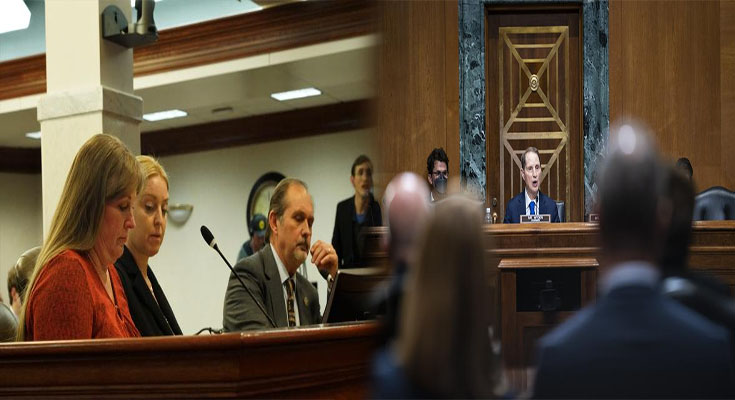The senate finance committee staff oversees legislation that is primarily concerned with taxation, debts and trade. This includes legislative oversight of public employees’ retirement systems and agencies such as the Department of Revenue and State Treasury. It also focuses on preserving Medicare and protecting retirement security, updating the nation’s tax structure with a focus on growth and fairness, and ensuring that fiscal policy supports American jobs.
Preparing for a Hearing
Whether legislative, oversight, investigative or confirmation, hearings share common elements of preparation and conduct. Among the most important are those that govern public announcements of a hearing, critical decisions regarding witnesses, and administrative arrangements.
Frequently, committee rules contain provisions that regulate these aspects of a hearing. For example, Senate rules generally require committee chairs to publicly announce a hearing at least seven days before the date of the public notice.
However, there are a number of exceptions to this rule. For example, the rules of the Committee on Agriculture, Nutrition and Forestry permit hearings with less than a week’s public notice only when the chair determines that “special circumstances” require swift action.
Despite this flexibility, it is advisable for witnesses to prepare their statements in advance of a hearing. This helps ensure that witnesses are prepared to address all of the committee’s questions.
Preparing a Media Packet
One of the most exciting and rewarding tasks for committee staff is preparing a media packet. The best media packets include a selection of eye-catching visuals that tell a story about the subject matter of the hearing in an entertaining and nonchalant manner. These materials include a well-thought out table of contents, a concise list of witnesses, an attractively designed briefing book, and a dazzling array of color and black and white photographs and charts to spruce up any office or meeting room.
In addition to preparing the best media packets for each of the committee’s hearings, staff also often prepare a more detailed and lengthy briefing book. A good briefing book may feature a briefing page, an overview of the subject, a glossary, a detailed table of contents, an extensive list of witnesses, and a colorful assortment of charts, maps and graphs to help jog the mind of a novice committee member or seasoned press watcher.
Preparing a Briefing Book
Before a hearing, committee staff sometimes prepare a briefing book to provide background material for Senators and their staffs. This information might include a description of the subject and scope of the hearing, an explanation of relevant statutes and regulations, and a comparison of all measures to be considered. It might also include press articles, court decisions, agency reports, academic studies, and a chronology of major events.
Often, the preparation of these briefing books requires several people. ClearPoint offers templates that eliminate the need for each person to build a report from scratch and allows multiple contributors to update the document at any time. This saves time and reduces stress for everyone involved. In addition, it creates a historical record that can be shared across your organization.
Invitations to Witnesses
Committees often invite witnesses to provide information relevant to bills being considered. These can include ministers of the Crown, public servants, stakeholder groups and experts. In the case of legislation being considered by the senate, the sponsoring minister usually appears first to give his or her reasons for supporting the bill and to explain the policy choices behind it.
Besides witness testimonies, committees collect much of their evidence through briefs and documents submitted to the committee. These materials can be tabled with the committee, filed as an exhibit or appended to the minutes of proceedings. To order the presentation of papers and records, a committee adopts a motion to do so. The committee’s clerk then serves a summons on the person or organization required to present the document.
Preparing for a Field Hearing
The committee staff prepares a hearing by planning it in advance and ensuring that critical procedures are met. This preparation requires a team of people with various areas of expertise.
For example, a legal specialist can advise witnesses on their exposure to the Senate, while a communications professional can engage with the press before and after the event to ensure that a company’s story is being told well.
In addition, it is important to identify the media who will cover the hearing. The committee should contact the Senate Daily Press Gallery, Periodical Press Gallery, Radio and Television Gallery, and the Press Photographers’ Gallery to schedule interviews with witnesses and members of the public.
A number of committees broadcast their hearings, but the rules vary widely. Generally, hearings that contain classified information or are not of significant interest to the public are not published.


